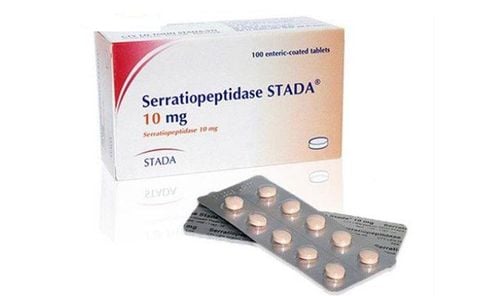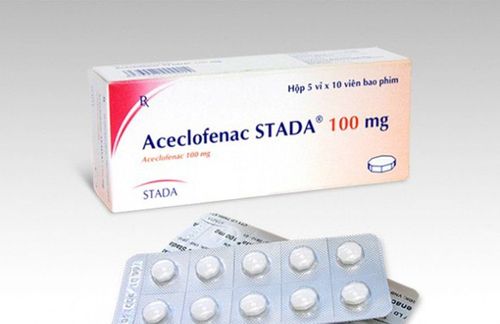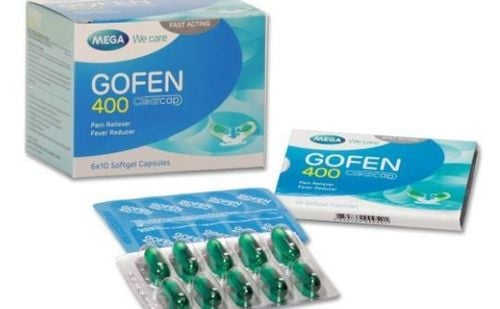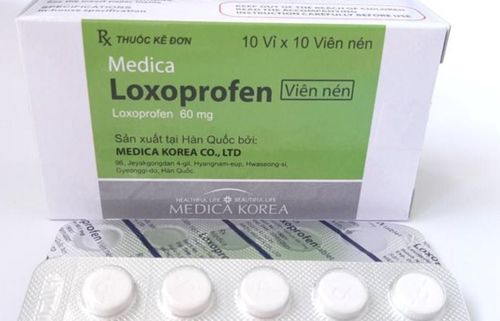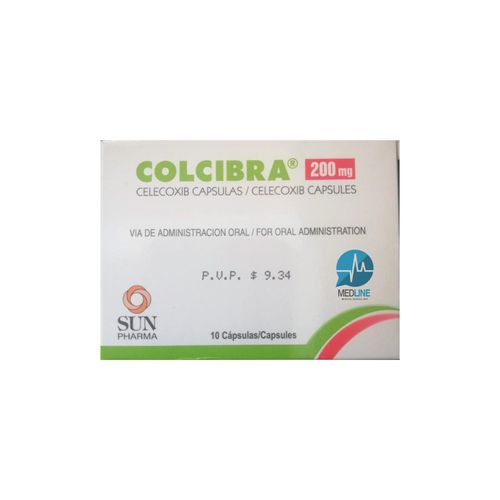Aceclofenac 100mg is a non-steroidal anti-inflammatory drug (NSAID). With its pain-relieving and anti-inflammatory properties, Aceclofenac 100 is used to treat the symptoms of rheumatoid arthritis and ankylosing spondylitis.
1. Effects of Aceclofenac
Aceclofenac 100mg belongs to the group of non-steroidal anti-inflammatory drugs, with the main ingredient being Aceclofenac 100mg. This active ingredient has pain-relieving and anti-inflammatory properties by inhibiting the synthesis of prostaglandins - unsaturated fatty acids found in tissues, which act as chemical mediators involved in the inflammatory process and pain perception.
Aceclofenac 100mg is formulated as film-coated tablets and is used to relieve pain and inflammation in osteoarthritis conditions such as rheumatoid arthritis and ankylosing spondylitis.
2. Dosage and Administration of Aceclofenac
Aceclofenac 100mg is taken orally, with the whole tablet swallowed with water, preferably during or after meals.
The dosage of Aceclofenac 100mg is as follows:
- Adults: 1 tablet of Aceclofenac 100 mg per dose, 2 times a day in the morning and evening.
- Elderly: No dose adjustment is needed for the elderly, use the same dose as adults, 1 tablet per dose, 2 times a day.
- Liver impairment: The initial dose is 1 tablet per day.
Overdosing on Aceclofenac 100 mg can cause symptoms such as epigastric pain, nausea, vomiting, gastrointestinal irritation (rarely causing diarrhea), gastrointestinal bleeding, headache, drowsiness, agitation, disorientation, coma, dizziness, fainting, seizures, tinnitus, respiratory depression, hypotension, and even acute renal failure and liver damage in severe cases of drug poisoning.
In case of an overdose of Aceclofenac 100 mg, symptomatic treatment is required. Within 1 hour of taking the drug, activated charcoal or gastric lavage should be used.
3. Side Effects of Aceclofenac
Aceclofenac 100 can cause some unwanted side effects with the following frequencies:
- Common: Dizziness, abdominal pain, nausea, indigestion, diarrhea, elevated liver enzymes.
- Uncommon: Vomiting, bloating, constipation, mouth ulcers, gastritis, rash, hives, itching, dermatitis, elevated creatinine and blood urea levels.
- Rare: Anemia, hypersensitivity reactions, anaphylactic shock, visual disturbances, difficulty breathing, black stools, facial swelling.
4. Precautions When Using Aceclofenac
- Do not use Aceclofenac 100 in individuals who are hypersensitive to its components, have a history or suspicion of gastrointestinal ulcers, gastrointestinal bleeding, or moderate to severe renal impairment.
- Elderly individuals have a higher risk of gastrointestinal perforation, gastrointestinal bleeding, vomiting, or bloody stools when using Aceclofenac 100 if they have a history of these conditions or with or without warning signs.
- Individuals with severe liver impairment using Aceclofenac 100 must be closely monitored medically.
- Individuals with mild renal impairment, heart failure, or elderly individuals using Aceclofenac 100 should be carefully monitored as the drug can cause renal impairment. The lowest effective dose should be used, and renal function should be regularly monitored.
- Individuals with hepatic porphyria using Aceclofenac 100 may trigger the disease.
- Individuals with a history of hypertension or heart failure should use Aceclofenac 100 with caution as it may increase the risk of edema.
- Women intending to become pregnant should not use Aceclofenac 100mg as it reduces fertility. Women undergoing infertility treatment should discontinue the drug. Pregnant women should only use the drug if the therapeutic benefits outweigh the risks.
- Breastfeeding women should consider using Aceclofenac 100 as the drug may be excreted into breast milk (at low concentrations).
- Individuals with a history or current asthma should use Aceclofenac 100 with caution as it can cause bronchospasm.
- Limit activities requiring alertness such as driving or operating machinery when using
- Aceclofenac 100 as the drug can cause drowsiness, visual disturbances, fatigue, and dizziness. Aceclofenac 100 can interact with other drugs, such as increasing the risk of side effects if used concurrently with two or more non-steroidal anti-inflammatory drugs; reducing the effectiveness of antihypertensive drugs; increasing renal toxicity risk with diuretics, immunosuppressants; worsening heart failure, reducing glomerular filtration rate when used with congestive heart failure medications; reducing lithium excretion; increasing methotrexate levels; reducing mifepristone effectiveness; increasing the risk of gastrointestinal ulcers and bleeding when used with corticosteroids; enhancing the effects of anticoagulants; increasing the risk of seizures when used with quinolone antibiotics; increasing the risk of gastrointestinal bleeding with antiplatelet drugs and selective serotonin reuptake inhibitors; increasing blood toxicity with zidovudine; increasing the risk of side effects and leading to gastrointestinal bleeding when used with other non-steroidal anti-inflammatory drugs.
- Dosage adjustments may be needed for diabetes medications when using Aceclofenac 100.
Aceclofenac 100 mg can interact with many other medications. Therefore, it is important to inform your doctor about all the medications you are taking, including prescription and over-the-counter drugs, herbal products, and dietary supplements.
Please dial HOTLINE for more information or register for an appointment HERE. Download MyVinmec app to make appointments faster and to manage your bookings easily.




